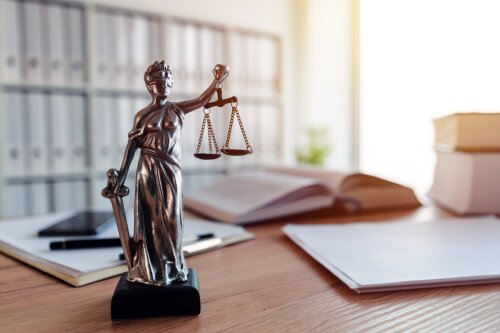Best Brain Injury Lawyers in Ohio
Share your needs with us, get contacted by law firms.
Free. Takes 2 min.
Or refine your search by selecting a city:
List of the best lawyers in Ohio, United States
About Brain Injury Law in Ohio, United States
Brain injuries are serious and often life-changing events that can result from accidents, falls, car crashes, sports incidents, medical malpractice, or workplace hazards. In Ohio, brain injury law covers the legal rights and options available to individuals who have suffered traumatic brain injuries (TBIs) or acquired brain injuries due to the negligent or wrongful actions of others. These cases can involve seeking compensation for medical bills, lost wages, ongoing care, pain and suffering, and other damages. Understanding your rights under Ohio law is vital to protecting yourself and your family after a brain injury.
Why You May Need a Lawyer
Brain injury cases in Ohio can be complex, both medically and legally. Hiring a qualified lawyer is important in situations such as:
- You or a loved one has suffered a brain injury in an automobile accident, slip and fall, assault, or workplace incident, and you suspect someone else is at fault.
- Insurance companies are denying or minimizing your claim, or offering a settlement that seems too low.
- You are navigating Social Security Disability Insurance (SSDI) or workers compensation benefits due to a brain injury.
- Medical negligence may have contributed to the brain injury.
- The injury has long-term impacts on employment, family life, or independent living, requiring future care and adjusted living arrangements.
- You need help understanding the full legal remedies and resources available under Ohio law.
Local Laws Overview
Ohio law recognizes many types of brain injuries in personal injury and workers compensation claims. Key aspects of local laws include:
- Statute of Limitations: In Ohio, you generally have two years from the date of the injury to file a personal injury lawsuit, though exceptions may apply.
- Comparative Negligence: Ohio uses a modified comparative negligence system. If you are found to be more than 50 percent at fault, you cannot recover damages. Fault under 50 percent reduces the compensation awarded.
- Damages: Ohio law allows compensation for medical expenses, lost income, future earning capacity, pain and suffering, and sometimes punitive damages if the defendant's conduct was especially egregious.
- No Cap on Economic Damages: There is no limit on economic damages such as medical bills and lost wages. However, non-economic damages like pain and suffering may have statutory limits in certain situations.
- Workers Compensation: Employees injured on the job, including from TBIs, may be eligible for benefits regardless of fault, but may have limited options to sue outside the workers compensation system unless a third party was involved.
- Insurance Requirements: Ohio is an at-fault car insurance state, meaning parties responsible for accidents are liable for resulting damages-including those that cause brain injuries.
Frequently Asked Questions
What is considered a brain injury in Ohio law?
A brain injury typically refers to trauma to the brain that results in physical, cognitive, behavioral, or emotional deficits. This can include concussions, contusions, open head injuries, and acquired injuries from oxygen deprivation or toxins.
What should I do if I suspect a brain injury?
Seek immediate medical attention. Document everything related to the injury, such as how it occurred, medical reports, and any witnesses. Consult with a legal professional as soon as possible.
How long do I have to file a lawsuit after a brain injury in Ohio?
The general statute of limitations for personal injury cases in Ohio is two years from the date of the incident. There can be exceptions, so timely legal advice is critical.
What compensation can I receive in a brain injury case?
You can seek compensation for medical bills, rehabilitation, lost wages, loss of earning capacity, pain and suffering, loss of enjoyment of life, and sometimes punitive damages.
Do I need evidence to prove my brain injury claim?
Yes. Medical records, expert testimony, accident reports, witness statements, and documentation of impacts on your life are all important forms of evidence in brain injury cases.
Are there special protections for children with brain injuries?
Yes. Minors may have longer periods to file lawsuits, and courts pay close attention to their unique needs in settlements and awards.
Can I pursue a case if my brain injury was partly my fault?
Possibly. Ohio's comparative negligence law allows you to recover damages if you are less than 50 percent at fault, but your compensation will be reduced by your percentage of fault.
Will insurance cover my brain injury expenses?
It depends on your policy and the circumstances. Liability, health, or auto insurance may cover some costs, but disputes are common, so legal assistance is often beneficial.
What happens if the person responsible has no insurance?
You may have options through your own insurance, such as uninsured motorist coverage, or you can pursue a personal injury lawsuit against the responsible party directly.
How can a brain injury lawyer help me?
A brain injury lawyer investigates your case, gathers evidence, negotiates with insurance companies, connects you with medical experts, and represents you in court if necessary to maximize your compensation.
Additional Resources
If you or a loved one is dealing with a brain injury in Ohio, consider reaching out to the following resources:
- Ohio State Bar Association for lawyer referrals and legal information
- Ohio Department of Health for injury prevention and rehabilitation resources
- Brain Injury Association of Ohio for support groups, advocacy, and education
- Ohio Bureau of Workers Compensation for workers injured on the job
- Social Security Administration for disability benefits and claims assistance
- Victims of Crime Compensation Program for crime-related brain injuries
Next Steps
If you have suffered a brain injury in Ohio or are caring for someone who has, take the following steps:
- Seek comprehensive medical evaluation and follow all medical advice.
- Document every aspect of your injury, including physical and emotional changes, treatments, expenses, and communications.
- Consult with a lawyer experienced in Ohio brain injury cases for an initial assessment.
- Gather relevant documents such as medical records, accident reports, and correspondence with insurance companies.
- Reach out to local brain injury support organizations for guidance and emotional assistance.
- Do not accept settlement offers or make formal statements until you have consulted with a lawyer.
Navigating the aftermath of a brain injury is challenging. With the right legal support and information, you can better protect your rights and access the resources you need for recovery and a stronger future.
Lawzana helps you find the best lawyers and law firms in Ohio through a curated and pre-screened list of qualified legal professionals. Our platform offers rankings and detailed profiles of attorneys and law firms, allowing you to compare based on practice areas, including Brain Injury, experience, and client feedback.
Each profile includes a description of the firm's areas of practice, client reviews, team members and partners, year of establishment, spoken languages, office locations, contact information, social media presence, and any published articles or resources. Most firms on our platform speak English and are experienced in both local and international legal matters.
Get a quote from top-rated law firms in Ohio, United States — quickly, securely, and without unnecessary hassle.
Disclaimer:
The information provided on this page is for general informational purposes only and does not constitute legal advice. While we strive to ensure the accuracy and relevance of the content, legal information may change over time, and interpretations of the law can vary. You should always consult with a qualified legal professional for advice specific to your situation.
We disclaim all liability for actions taken or not taken based on the content of this page. If you believe any information is incorrect or outdated, please contact us, and we will review and update it where appropriate.
Browse brain injury law firms by city in Ohio
Refine your search by selecting a city.












